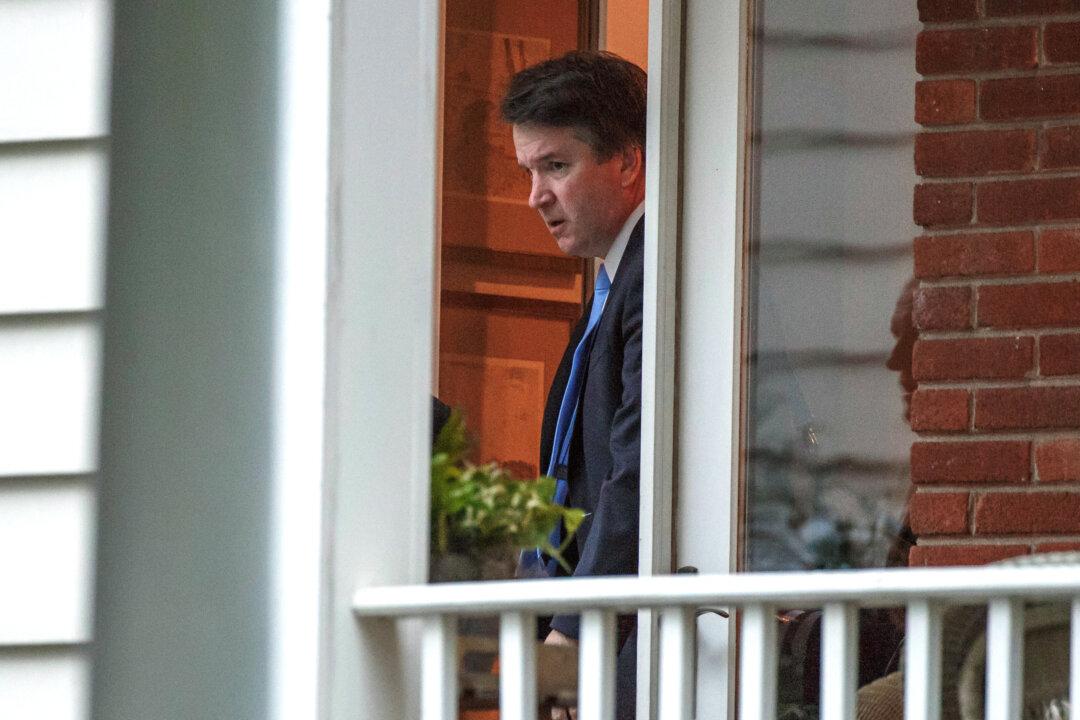Brett Kavanaugh rose beyond the rancor of his confirmation battle on his first day as a Supreme Court justice on Oct. 9, asking several questions during oral arguments alongside a collegial group of fellow justices.
Seated on the right end of the mahogany bench, a place reserved for new justices, Kavanaugh asked several questions during two hours of oral arguments on federal sentencing guidelines for repeat offenders.





